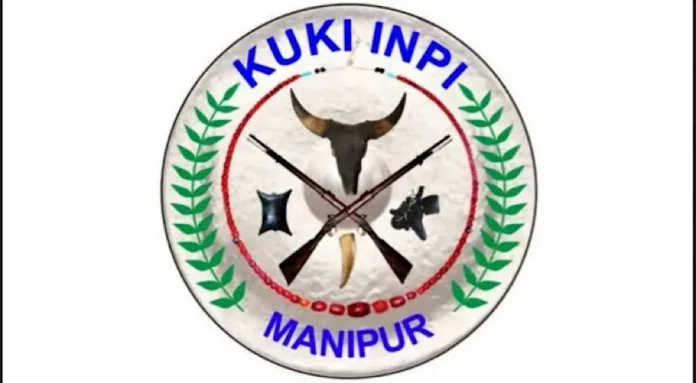Imphal, Sept 20: The Kuki Inpi Manipur (KIM) has strongly opposed Union Home Minister Amit Shah’s recent proposal to fence the Indo-Myanmar border, which he suggested as a solution to the ongoing crisis in Manipur. KIM argues that illegal immigration is not the root cause of the violence that has plagued the state for over 16 months.
In a forceful statement, KIM criticized the United Committee Manipur (UCM) for supporting Shah’s fencing proposal, labeling it as misguided. According to KIM, the violence is not linked to cross-border immigration but is instead a result of what they term “state-sponsored ethnic cleansing” against the Kuki-Zo people. They pointed out that Meitei settlements in Churachandpur have been largely deserted and accused the state of ignoring attacks by armed Kuki militants on Meitei villages using drone bombs and long-range rockets.
KIM also noted that opposition to the border fencing extends beyond the Kuki-Zo community, but also ethnic communities in Arunachal Pradesh, Nagaland, and Mizoram denouncing the project. They argue that the proposal disregards historical and cultural connections that predate modern India’s borders and infringes upon human rights.
The organization questioned Shah’s portrayal of the conflict, alleging that he is framing it as an ethnic dispute rather than a matter of illegal immigration or terrorism. KIM contends that the government should focus on addressing the needs of Internally Displaced Persons (IDPs) who have suffered due to what they call a “state-sponsored genocide,” rather than pursuing border fencing. They believe that the fencing will not resolve the deep-seated ethnic tensions and that current relief efforts for displaced communities remain insufficient.
In contrast to Shah’s call for enhanced border security, KIM reiterated its demand for a separate administration for the Kuki-Zo people, a proposal some critics argue might exacerbate the crisis. KIM maintains that this is the only effective resolution to the conflict, indicating continued resistance to the government’s border control measures as a means to restore peace.


